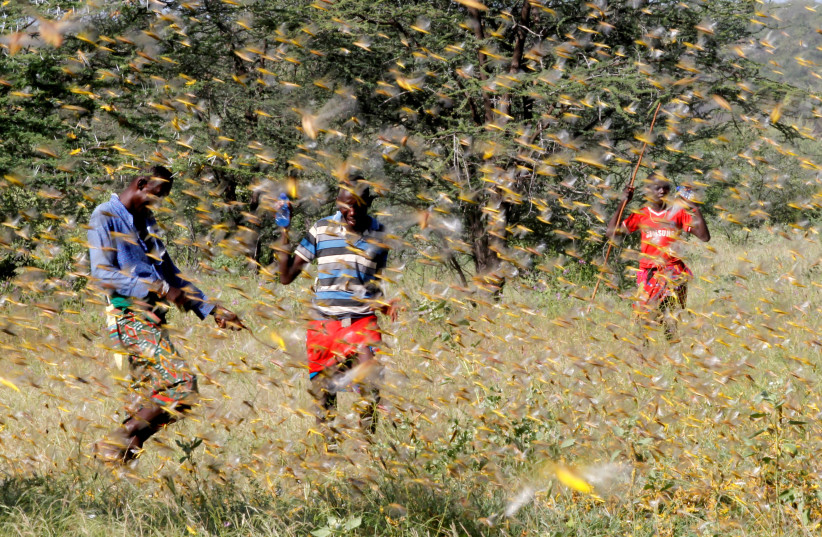Even as India battles the coronavirus pandemic, four Indian states — Madhya Pradesh, Rajasthan, Punjab and Gujarat — are facing another challenge : a desert locust attack.
While many districts in Rajasthan and Madhya Pradesh are battling the scourge; Punjab and Gujarat have warned farmers that they could be the next. Reports suggest that the locust swarms might as well move into Delhi.

Previous attack
The current round is the second such attack; the first one was from December to February. India was then moderately successful in tackling the problem
Locust attacks are not new to India, but earlier they used to leave India by November. But the swarms stayed on till early February this year.
How was the earlier attack averted?
The states deployed teams to spray organophosphate to kill locusts.
Organophosphates (OP) are chemical substances that are produced by the process of esterification between phosphoric acid and alcohol. Organophosphates can undergo hydrolysis with the liberation of alcohol from the esteric bond. These chemicals are the main components of herbicides, pesticides, and insecticides.
What are these Desert Locusts?
The desert locust is one of 12 species of short-horned grasshoppers; its swarms can travel up to 130 km in one day. Each day, a locust can eat its own weight — about two grams of fresh vegetation.
Damage they can cause
They not only devour valuable standing crops, but can also devastate livelihoods of those associated with the agricultural supply chain.
- The Food and Agriculture Organization has warned that the locust attack could lead to a major threat to food security.
- This year’s extended locust stay was because of the climate crisis.
- In 2019, early Monsoon and extended rains created breeding conditions and also produced natural vegetation on which locusts feed.
This Year’s attack
The May attack has been attributed to a series of cyclones in the Indian Ocean that hit a sandy area in the Arabian peninsula, providing hospitable breeding conditions for locusts.
In conclusion
Current global challenges — the coronavirus pandemic, increasing intensity of cyclones (as Amphan has shown), the locust attacks in Africa, Iran, Pakistan and India — demonstrate the perils of environmental degradation and the need for international cooperation to fight trans-border challenges.
India has proposed a trilateral response in partnership with Pakistan and Iran to combat the desert locust wave. This is positive, and must be a template to deal with environment-related challenges.




